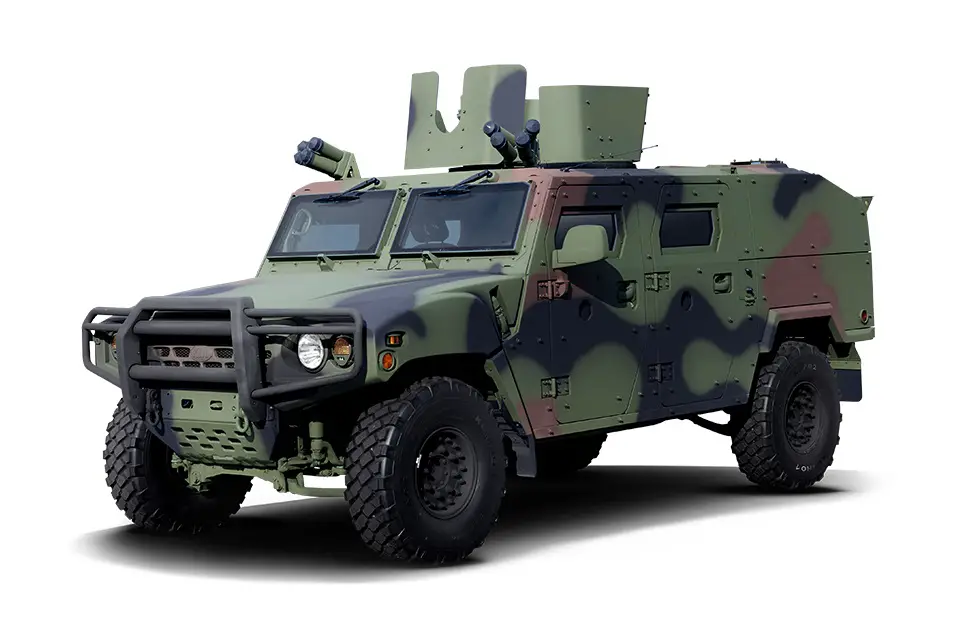In a strategic move aimed at enhancing the capabilities of the Polish Army and ensuring the country’s national security, Minister of National Defence Mariusz Blaszczak has recently unveiled a series of armoured vehicle contracts that are set to fortify Poland’s military prowess over the next 12 years. This significant development comes just months before Poland’s parliamentary elections, underscoring the commitment of the government to bolster the nation’s defense capabilities. The first contract, announced on August 14th, is a groundbreaking partnership between the Polish Armaments Agency (AA) and the state-owned Polish Armaments Group (PGZ), which will result in the delivery of 400 ‘Polonised’ Kia Light Tactical Vehicles (KLTVs). This represents a transformative step towards modernizing the Polish army’s vehicle fleet, enabling it to respond effectively to a range of operational scenarios. These Korean-manufactured lightweight armoured platforms, to be produced by PGZ subsidiary Rosomak as the Light Reconnaissance Vehicle (Lekki Pojazd Rozpoznawczy: LPR), signify the fusion of cutting-edge technology with domestic manufacturing capability. This synergy is projected to yield not only vehicles but also production infrastructure, maintenance logistics, and essential training capabilities within Poland’s borders. The KLTVs are designed to be high-mobility platforms, equipped to transport four troops along with mission gear, including sophisticated all-weather day and night observation systems. Furthermore, the incorporation of additional armour suites and gunner stations armed with machine guns or high-velocity 40 mm grenade launchers attests to the meticulous attention paid to the security and combat-readiness of these vehicles.

In addition to the KLTV contract, Minister B?aszczak has also ratified a forward-looking framework agreement under the Serwal programme. This collaboration between Polish Armament Group (PGZ) and Huta Stalowa will introduce a substantial number of wheeled infantry fighting vehicles (IFVs) with comprehensive logistics and training packages in the years 2028–2035. Notably, the decision to embark on this endeavour stems from an evaluation of the existing 8×8 Rosomak armoured personnel carrier (APC), reflecting Poland’s commitment to continual improvement and adaptability. The IFVs set to be delivered as part of this agreement are poised to be a leap forward in terms of technology, versatility, and combat effectiveness. Offered in various configurations, they will feature the utilization of the country’s ZSSW unmanned turret, a testament to Poland’s prowess in integrating advanced weapon systems into its defense infrastructure. Underpinning these advancements is the Krab chassis, a proven platform that aligns with the nation’s defense objectives. The primary role of the new heavy infantry fighting vehicle, as envisioned by PGZ, is to engage a wide spectrum of targets, ranging from armored vehicles to field shelters and fortifications. It’s an embodiment of Poland’s commitment to achieving tactical superiority in direct confrontations with adversaries. The vehicle’s specifications, which encompass the transportation of a crew of three and eight troops for landing, as well as providing formidable fire support in diverse conditions, further reinforce its significance as a force multiplier on the battlefield. Importantly, the emphasis on ballistic and mine protection, coupled with the robust traction capabilities of the heavy infantry fighting vehicle, illustrates the meticulous attention to the safety and effectiveness of the troops operating these vehicles. This commitment to safeguarding personnel while simultaneously ensuring maximum combat potential is a testament to the comprehensive approach underlying these vehicle contracts.
In conclusion, Minister Mariusz B?aszczak’s announcement of the vehicle contracts is a pivotal step towards fortifying Poland’s defense capabilities. These agreements not only underscore Poland’s commitment to maintaining a strong national security posture but also showcase its capacity to forge strategic partnerships, harness cutting-edge technology, and integrate advanced weaponry. By bolstering its vehicle fleet, Poland is poised to enhance its ability to respond effectively to a spectrum of security challenges, securing its position as a vital player on the global stage.












